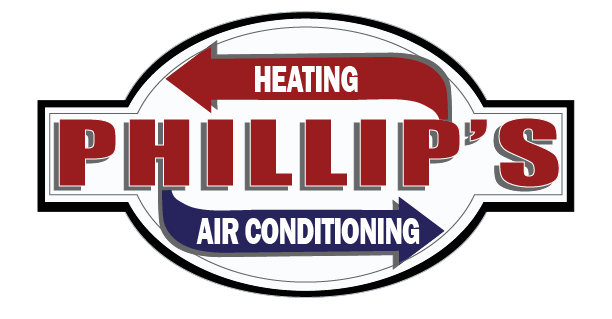Do you or other family members seem to be sniffling and sneezing more inside your home in Austintown, OH? Perhaps you also experience eye irritation, headaches, dizziness, nausea, and irritability. You may have also noticed how these symptoms improve or disappear as soon as you leave the house.
Those are all signs of poor indoor air quality (IAQ).
Many factors can cause poor IAQ, including dust, dirt, pet and human dander, and smoke. Likewise, household cleaners, pesticides, molds, and pollen can lead to unhealthy indoor air.
A lesser-known culprit, however, is a problematic water heating system.
But what exactly is the link between water heater issues and poor IAQ? How can a system designed to provide hot water negatively impact your indoor air?
This guide discusses what you need to know, so please read on.
How Water Heaters Contribute to Poor Indoor Air Quality
Water heaters that leak gas can have a direct negative impact on indoor air quality. The same can happen if they backdraft.
They can also indirectly affect air quality if they leak water.
Gas Leaks
In the Midwest, natural gas is the most common way to heat water. According to the latest federal data, in 2020, 60% of households in the region relied on it for their hot water needs.
If your household is one of those, it could be at risk of exposure to harmful gases due to a defective water heater. This can happen if your system has a damaged and leaking gas valve, gas supply line, flue vent pipe, or vent hood.
Natural Gas Leaks
Natural gas, whose primary component is methane, is invisible, odorless, and non-toxic. However, if allowed to build up at high levels within an enclosed area, it can cause suffocation. It can also catch fire or explode, resulting in burn injuries and even fatalities.
Because of those risks, gas companies add mercaptan to natural gas. This compound gives natural gas its distinct sulfuric odor, which smells like rotten eggs. Thus, it makes identifying potential natural gas leaks easier.
So, if you notice that smell near your gas water heater, it could be a sign of a natural gas leak. A bubbling or hissing sound often accompanies this foul odor.
In that case, please turn off your water heater and shut off its gas valve ASAP. Have everyone, including pets, vacate your home. If you can, open as many windows as you leave your house.
Once outside, call your gas supplier and an Austintown emergency water heating specialist. Tell them about the issue so they can immediately inspect and fix your gas line and water heater.
Combustion Gas Leaks
Gas-powered water heaters, including tank-type and boilers, burn gas to heat water. This process generates combustion gases, including the following:
- Carbon monoxide (CO)
- Carbon dioxide (CO2)
- Nitrogen oxides (NOx)
- Sulfur dioxide (SO2)
Those gases are harmful when inhaled. For example, every year, accidental CO poisoning results in over 100,000 people visiting U.S. emergency departments.
Combustion gases from water heaters supposedly must exit your home through vent pipes. However, if the vent pipes have leaks or damage, they can leak the gases into your home. When this happens, they pollute your indoor air, causing its quality to drop.
Backdrafts
Back-drafting occurs when a vented water heater fails to exhaust combustion gases properly. It often results from poor vent installation and vent obstructions. Either way, it causes harmful gases to spill into your home rather than flow out of it.
Increased Indoor Humidity
A water heating system that leaks water can lead to poor IAQ by making indoor air too humid.
Ideally, your home’s indoor humidity should be around 40% to 60%. Health experts say anything under or higher can have significant health impacts. It can promote the transmission of infectious diseases and worsen respiratory conditions.
High indoor humidity levels also compromise IAQ by promoting mold growth. After all, these microorganisms love moisture and only need oxygen and food to thrive. They can live on (and destroy) many things, including paper and wood, which are present in your home.
Molds can also produce microbial VOCs (volatile organic compounds). These compounds often have unpleasant odors. Experts associate them with adverse effects like dizziness, nausea, and fatigue.
Preventing Your Water Heater From Affecting Your IAQ
While water heaters may contribute to poor IAQ, such issues are often due to poor maintenance. Thus, maintaining your water heater can help prevent it from causing IAQ woes. Likewise, knowing when to replace it can help keep more severe problems at bay.
Annual Maintenance
Schedule your water heater or boiler for annual maintenance. Professional technicians will inspect your system for problems during this service. They’ll assess its condition to confirm any damaged part that requires heater repairs or replacement.
You can also expect the experienced technicians to clean your system. For example, they may flush your water heater tank and replace its anode rod. They’ll also service the flue vents for improved ventilation.
Water Heater Upgrade
You should also consider a water heater upgrade if your existing system is nearing or over ten years old. This is the typical lifespan of water heating systems, so once they hit this age, they’re likely to break down soon. You don’t want to experience the problems we discussed above, so it’s best you replace your old heater before they happen.
Besides, compared to their predecessors, modern water heaters are more energy-efficient. This means they require less energy to heat water. As a result, they can help you save energy and minimize your water heating bills.
Breathe Better With a Well-Maintained Water Heater
Now that you know how water heaters can cause poor indoor air quality, it’s time to get yours checked and tuned up. This is even more crucial if it’s about ten years old or you haven’t had it serviced for over a year.
At Phillips Heating and Air Conditioning, our experienced technicians can help with all your water heating needs. We have nearly nine decades of experience providing top-quality HVAC and water heating solutions.
So, speak with us today! We’ll happily service the HVAC or water heater in your Austintown, OH, home!

